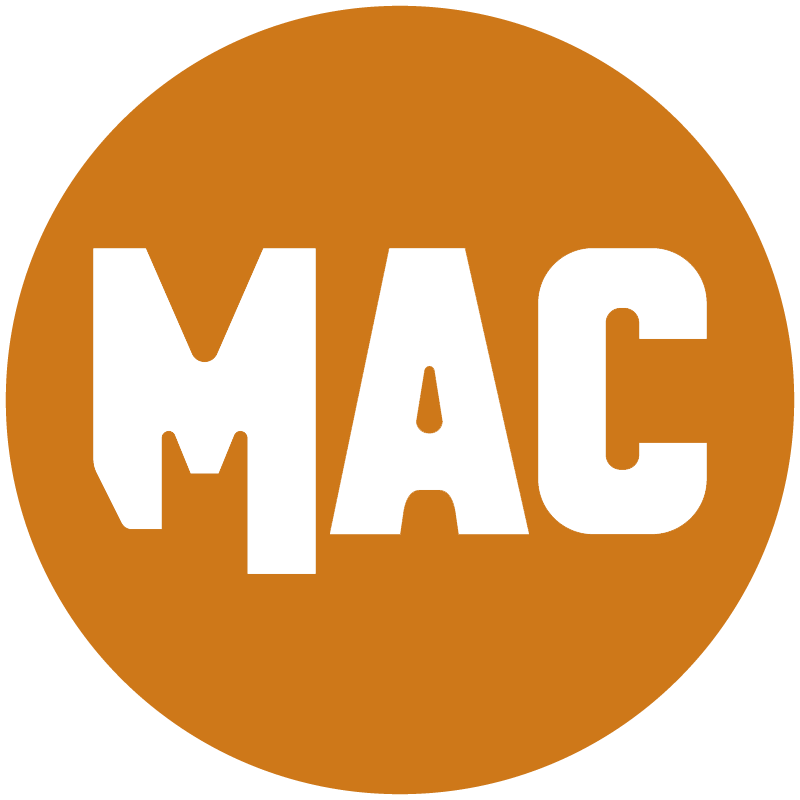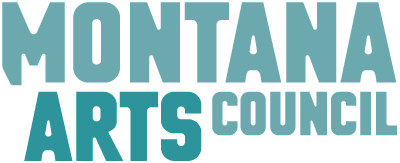

Cultural and Aesthetic Projects
In 1975, the Montana Legislature set aside a percentage of the Coal Tax to restore murals in the Capitol and support other cultural and aesthetic projects. This unique funding source is a Cultural Trust, with grant money allocated every two years. Grant funds are derived from the interest earned on the Cultural Trust.
In 1983, the Legislature established a Cultural and Aesthetic Projects Advisory Committee with 16 members, half appointed by the Montana Arts Council and half by the Montana Historical Society. The committee reviews all grant proposals and makes funding recommendations to the Legislature, which determines who will receive grant funds. The Montana Arts Council administers the program for the Legislature.
Applications must be for cultural and aesthetic projects including, but not limited to:
- Visual Arts
- Performing Arts
- Literary Arts
- Media Arts
- History
- Archaeology
- Folklore
- Archives
- Collections
- Research
- Historic Preservation and Construction
- Renovation of Cultural Facilities
Applications are encouraged for applicants serving rural communities, racial and ethnic groups, people with disabilities, institutionalized populations, youth and the aging.
The next program deadline is August 1, 2026 (for the funding cycle July 1, 2027-June 30, 2029) Guidelines will be available in May 2026
Previous program guidelines available by request to kburgoyne@mt.gov.
SAMPLE Previous Cultural Trust FY2026-2027 Governor's Budget Book
Apply for membership to the Advisory Committee
Appointed by the Montana Arts Council:
- Virginia Bryan, Billings
- Mary Callahan Baumstark, Lewistown
- Troy Evans, Roundup
- Lee Ellen Hveem, Billings
- Jennifer Jeffries Thompson, Helena
- Bess Lovec, Billings
- Susan Miller, Bozeman
- Ben Thiem, Kalispell
Appointed by the Montana Historical Society:
- Jennifer Birnel, Statewide
- Shane Doyle, Bozeman
- Tate Jones, Missoula
- Don Matlock, Hamilton
- Bruce Mihelish, Missoula
- Peter Rudd, Helena
- Kristi Scott, Great Falls
- Jill Baker/Megan Sundy, Humanities Montana, Statewide
For More Information
- Montana Arts Council (406) 444-6430 mac@mt.gov
- Montana Historical Society
- State Historic Preservation Office
- Humanities Montana
- Montana State Library
Grant applicant must provide assurance that:
- No person shall, on the grounds of race, creed, religion, color, sex, physical or mental disability, age or national origin, be excluded from participation in, be denied the benefits of, or be subject to discrimination under any program or activity that results from the expenditure of grant funds.
- The organization will comply with the Fair Labor Standards Act in regard to the employment of professional personnel, mechanics and laborers and with the health, safety and sanitary laws of Montana. The applicant will provide such assurance to the Montana Commissioner of Labor and Industry and the Secretary of Labor upon request.
- The organization will not use grants funds for lobbying, influencing legislation, or partisan political activity of any kind. (Hatch Act [5 U. S. C. 1501-1508] & Intergovernmental Act of 1970 as amended by Title VI of the Civil Service Reform Act. )
- The organization will comply with the Native American Graves Protection and Repatriation Act (NAGPRA) and Montana’s Human Remains and Burial Site Protection Act (MCA 22-3-801 through 22-3-811). These two pieces of legislation require respectful treatment of human remains and objects of cultural patrimony. NAGPRA especially involves a specific process for inventorying and handling existing museum collections. Native American Antiquities: As reflected by the passage of such legislation as the Native American Graves Protection and Repatriation Act (NAGPRA), professional museums and public agencies should now be committed to treating objects and materials important to Native Americans respectfully and, if possible and as tribes request, returning such materials for safekeeping to appropriate tribes. Specifically, public historical and interpretive facilities should actively be (a) understanding and cataloging the full range of existing Native American sacred objects, objects of cultural patrimony, human remains, and associated and unassociated funerary objects, (b) communicating personally with tribes to determine affiliation where possible, and (c) as requested by tribes, committing to return and repatriation of materials for which historical affiliations and associations can be understood. Under no circumstances is display of human remains appropriate. The NAGPRA law is very serious legislation. Interpretation should involve tribes and qualified professionals.
The applicant will comply with all State of Montana laws including the open meeting law. Per state law MCA 2-3-203. Meetings of public agencies and certain associations of public agencies to be open to the public. All meetings of public or governmental bodies, boards, bureaus, commissions, agencies of the state, or any political subdivision of the state or organizations or agencies supported in whole or in part by public funds or expending public funds must be open to the public. This means all organizations funded by state monies at any level must open their meetings to the public. For complete details, please refer to the law above located on the web at: https://archive.legmt.gov/bills/mca/title_0220/chapter_0020/part_0030/sections_index.htmlhttp://data.opi.mt.gov/bills/mca/2/3/2-3-203.htm.
The 2003 Legislature made a change in this law that now requires every board covered by the open meeting act also to have a public comment session that allows individuals to comment on matters that are within the jurisdiction of the agency conducting the meeting, even if they are not on the agenda of the meeting. If something is on the agenda, then the person shall be required to wait until it comes up and not speak during the general public comment period.
Grant Payment/Report Requirements
Notification
Applicants will be notified electronically of funding decisions shortly after the legislative session ends or around May 1.
Payments
Payments will only be released following submission of all required paperwork and if the Cultural and Aesthetic Project account has funds available and if an examination of the costs incurred by the grantee shows the payment is appropriate. Five percent of the total grant award will be withheld until final reports are received by the Montana Arts Council.
In no case will grants be released without receipt of any prior final reporting due to the arts council. Awardees may receive up to 1/2 of the total grant after January 1, even year; and the balance after January 1, odd year.
Challenge grants will be paid when the benefiting organization documents the specified match.
Organizations failing to meet the total match requirement within the grant period will be eligible to receive that portion of the grant that has been matched. The review committee will be apprised of an organization’s inability to meet the total match.
Budget Modifications
Grant awards are made as legislative appropriations for specific purposes. Once the proposal and budget have been approved, legislative action is needed to modify it. The Montana Arts Council HAS NO AUTHORITY to increase the grant award or to allow you to modify the scope or purpose of the award.
Coal Acknowledgement
Post the following statement on the website, promotional materials, and publications: "We are funded in part by coal severance taxes paid based upon coal mined in Montana and deposited in Montana's cultural and aesthetic projects trust fund."
Final Reporting
Final reports include narrative and financial information. The council staff will provide the forms for those reports online.
This legislative program follows the law and rules linked to below.
Part 3. Cultural and Aesthetic Projects - Table of Contents, Title 22, Chapter 2, MCA (mt.gov)
Subchapter Home: - Administrative Rules of the State of Montana (mt.gov)
